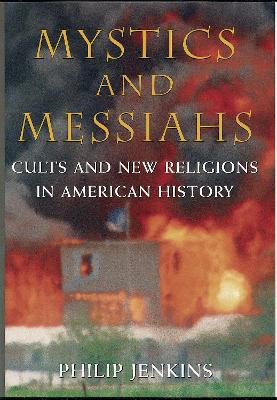Are religious fringe movements a recent phenomenon in American history? Are widespread fears of mass suicides, sexual abuse, and brainwashing in cults justified? Do marginalized religious groups play any positive role in American spiritual life? Do the panics over such groups follow any discernible pattern?
Phillip Jenkins gives fascinating-and surprising-answers to these and many other questions in Mystics and Messiahs, the first full account of cults and anti-cult scares in American history. Jenkins shows that, contrary to popular belief, cults were by no means an invention of the 1960s. In fact, most of the frightening images and stereotypes surrounding fringe religious movements are traceable to the mid-nineteenth century when Mormons, Freemasons, and even Catholics were vehemently
denounced for supposed ritualistic violence, fraud, and sexual depravity. As Charles Ferguson observed in 1928, "America has always been the sanctuary of amazing cults." But America has also been the home of an often hysterical anti-cult backlash. Jenkins provides an insightful new analysis of why cults
arouse such fear and hatred both in the secular world and in mainstream churches, many of which-Baptists, Quakers, Pentecostals, and Methodists-were themselves originally regarded as cults. Most importantly, Jenkins argues that an accurate historical perspective is urgently needed if we are to avoid the kind of catastrophic confrontation that occurred in Waco or the ruinous prosecution of imagined Satanic cults in the 1980s.
While not ignoring genuine instances of aberrant behavior, Mystics and Messiahs goes beyond the vast edifice of myth, distortion, and hype to reveal the true characteristics of religious fringe movements and why they inspire such fierce antagonism.
- ISBN10 0195145968
- ISBN13 9780195145960
- Publish Date 18 October 2001 (first published 1 January 2000)
- Publish Status Active
- Publish Country US
- Imprint Oxford University Press Inc
- Format Paperback
- Pages 304
- Language English
